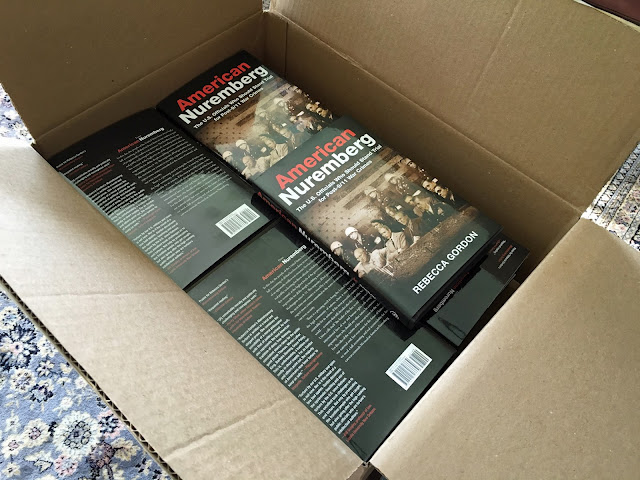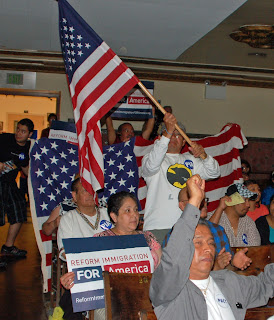When thinking about religious support for candidates and issues, we tend to think first of denominational (and/or perhaps ideological) subsets: evangelical, Catholic, mainline Protestant, the "nones," other faiths, ad infinituum. Ain't our religious diversity grand?
But Robert P. Jones of the
Public Religion Research Institute makes a point that this habitual way of thinking misses. If you focus on all types of
white Christians, their predominance in the nation ended during the last decade.
Just as Barack Obama was being elected in 2008, 54 percent of the country was white and Christian, so if you took all Christian groups together that were white, they still made up a majority. By the time Obama’s term is over, our last data is showing that number is now 45 percent of the country.
We know that the country is browning, that demographers say that by 2040 no racial group will make up an absolute majority. When you think about this, it become obvious that, just as in all other ways of looking at the nation, eventually Christians who are white would cease to be an absolute majority. Well this has happened.
Jones thinks this fact provides a useful insight into Donald Trump's support among white Christians who might be expected to be repelled by his boorish behavior and slippery personal morals. He calls Trump's white crowds mostly "nostalgia" voters, make it great "AGAIN" voters -- people who are living amid rapid change that they find inexplicable and who respond with fear and a fervent (even sometimes violent) desire to turn back the clock. This overrides whatever their ostensible religious affiliation might suggest about what they would want in a candidate.
Jones made another
observation on religious voting behavior. Though more and more people describe their religious affiliation as "none," the nones have not made their presence felt in elections in proportion to their growing numbers.
... today if we do the typical social science division of religious groups in the country, today the largest religious group in the country is religiously unaffiliated Americans. They make up 23 percent of the country today. ... So they’re larger than evangelicals, they’re larger than Catholics. And they keep growing. It’s largely fueled by younger people among whom more than a third are religiously unaffiliated. The challenge here is even though they keep growing as a proportion of the population, they tend to turn out at much lower levels in both midterm elections and presidential elections. So for the last three — two presidential cycles and a midterm election cycle — even though they’ve been 20 percent or more of the population, they’ve only been 12 percent of voters. And so there’s an untapped potential here of these religiously unaffiliated voters.
Is this relative abstention because "nones" are disproportionately young or does absence of religious affiliation equate with lower civic participation?
I have my suspicions that the latter may play a role. Our electoral campaigns can be tedious, noisy, and only occasionally meaningful; they are too often unedifying and corrupt. Ballots are long and full. In addition to the major offices we hear so much about, we are supposed to vote on hundreds of other positions about which normal citizens know nothing such as tax assessors and county clerks. Responsible citizenship demands hard work, yet the whole thrust of our efforts to increase voting has been to make the process more convenient and individual. Mail-in ballots (and internet voting if we ever get there) replicate the habits of our individualistic consumer society. We're able to vote from home, alone, and never have the sense of doing something important with everyone else.
People who join and work together in churches at least have regular experience of collective activity that claims a purpose. Aside perhaps from amateur sports teams, it is hard to think of other loci of day-to-day experience of groups of people pulling together for a goal. Yet citizenship -- civic participation in the current jargon -- arises from a sense of the individual embedded within the group. Religiously affiliated people may have a leg up on desiring collective action and consequently may vote more. Just a thought.
We certainly don't want to make voting harder, but we probably do want to make it more something that we do alongside others. Anyone up for planing parades to the polling stations?
Thanks to Erudite Partner for the rudimentary chart, using PRRI and Pew data. Robert P. Jones has a book, The End of White Christian America, due out in July.





































